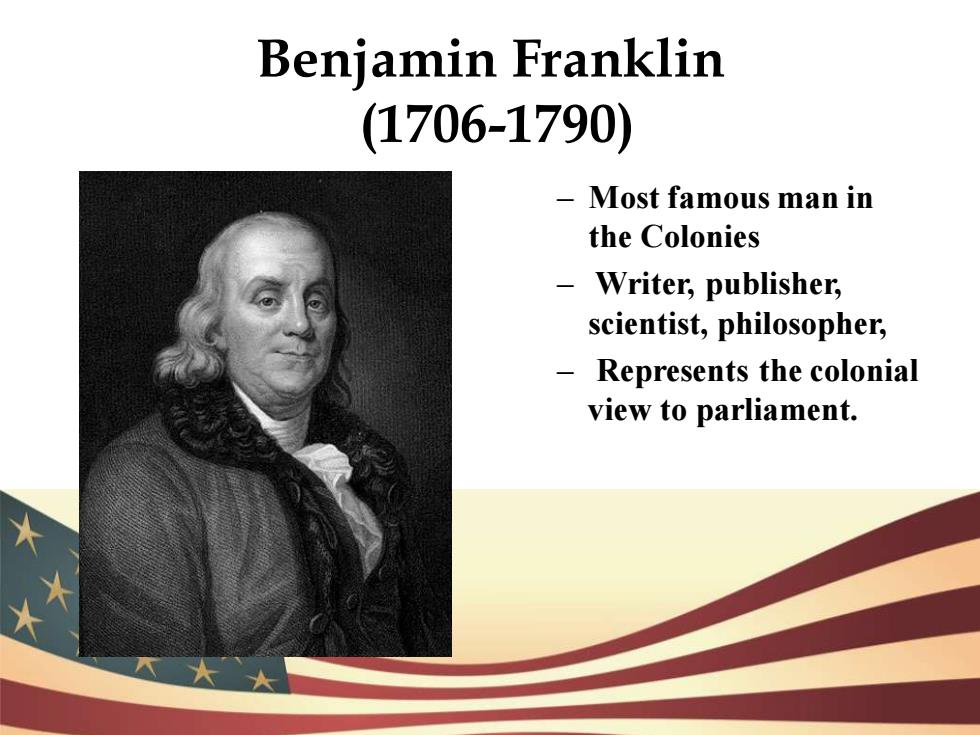
Benjamin Franklin (1706-1790) Most famous man in the Colonies Writer,publisher, scientist,philosopher, -Represents the colonial view to parliament
Benjamin Franklin (1706-1790) – Most famous man in the Colonies – Writer, publisher, scientist, philosopher, – Represents the colonial view to parliament
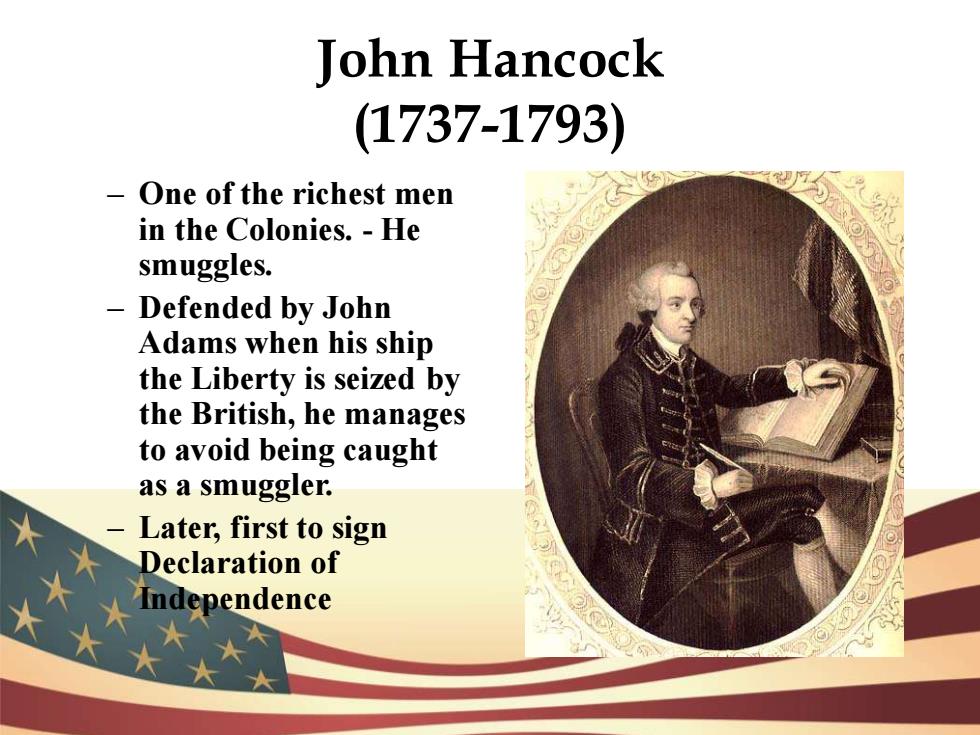
John Hancock (1737-1793) -One of the richest men in the Colonies.-He smuggles. Defended by John Adams when his ship the Liberty is seized by the British,he manages to avoid being caught as a smuggler. Later,first to sign Declaration of 米independence a 大
John Hancock (1737-1793) – One of the richest men in the Colonies. - He smuggles. – Defended by John Adams when his ship the Liberty is seized by the British, he manages to avoid being caught as a smuggler. – Later, first to sign Declaration of Independence
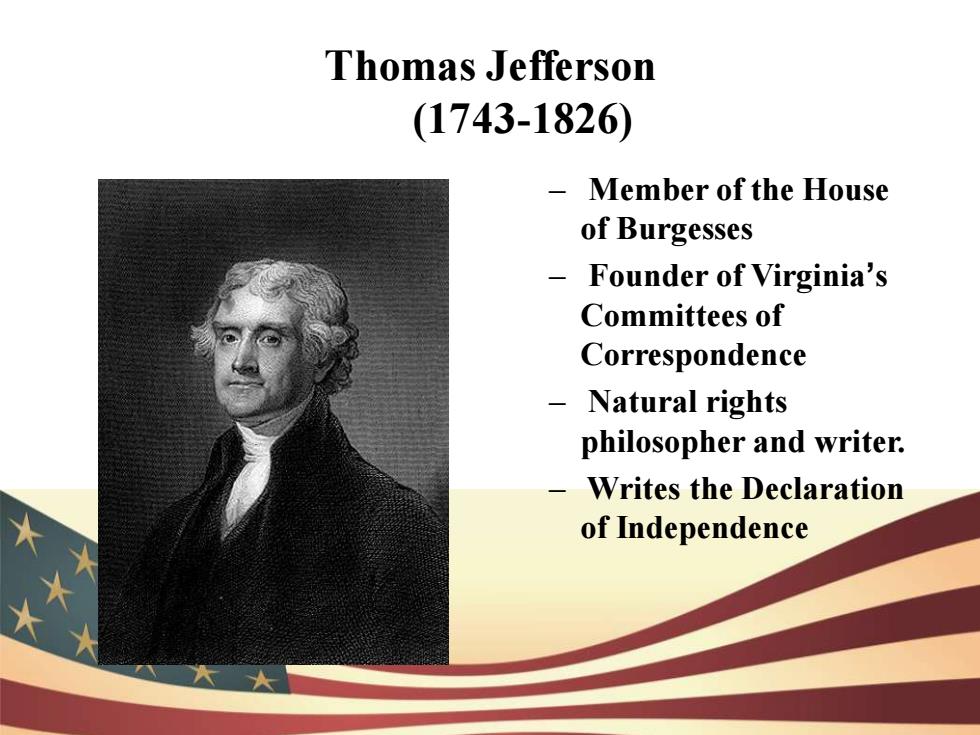
Thomas Jefferson (1743-1826) Member of the House of Burgesses Founder of Virginia's Committees of Correspondence Natural rights philosopher and writer. Writes the Declaration of Independence
Thomas Jefferson (1743-1826) – Member of the House of Burgesses – Founder of Virginia’s Committees of Correspondence – Natural rights philosopher and writer. – Writes the Declaration of Independence
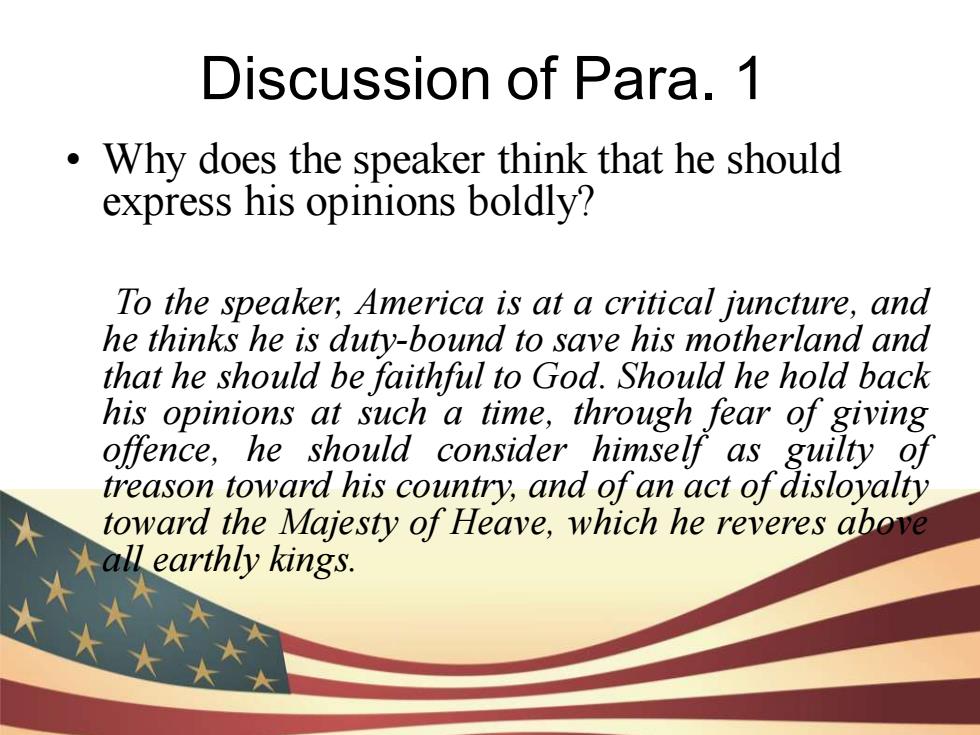
Discussion of Para.1 Why does the speaker think that he should express his opinions boldly? To the speaker,America is at a critical juncture,and he thinks he is duty-bound to save his motherland and that he should be faithful to God.Should he hold back his opinions at such a time,through fear of giving offence,he should consider himself as guilty of treason toward his country,and ofan act of disloyalty toward the Majesty of Heave,which he reveres above all earthly kings. 大
Discussion of Para. 1 • Why does the speaker think that he should express his opinions boldly? To the speaker, America is at a critical juncture, and he thinks he is duty-bound to save his motherland and that he should be faithful to God. Should he hold back his opinions at such a time, through fear of giving offence, he should consider himself as guilty of treason toward his country, and of an act of disloyalty toward the Majesty of Heave, which he reveres above all earthly kings
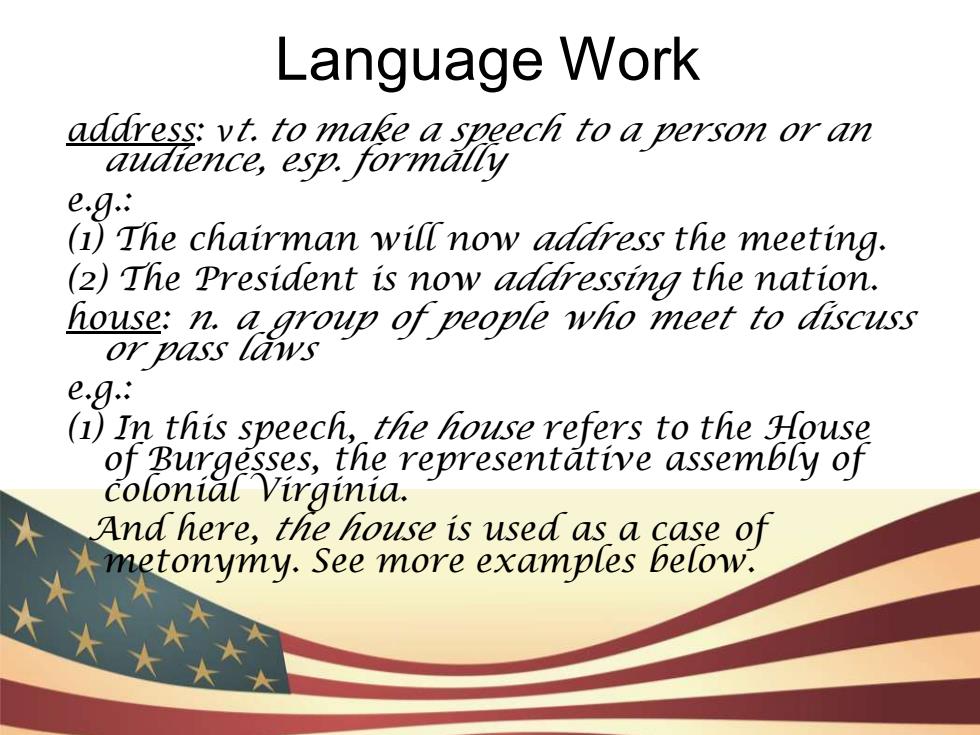
Language Work address:vt.to make a speech to a person or an audience,esp.formally e.9. (1)The chairman will now address the meeting. (2)The President is now addressing the nation. house:n.a group of people who meet to discuss or pass laws e.g.: (1)In this speech,the house refers to the House of Burgesses,the representative assembly of colonial Virginia. And here,the house is used as a case of metonymy.See more examples below
Language Work address: νt. to make a speech to a person or an audience, esp. formally e.g.: (1) The chairman will now address the meeting. (2) The President is now addressing the nation. house: n. a group of people who meet to discuss or pass laws e.g.: (1) In this speech, the house refers to the House of Burgesses, the representative assembly of colonial Virginia. And here, the house is used as a case of metonymy. See more examples below